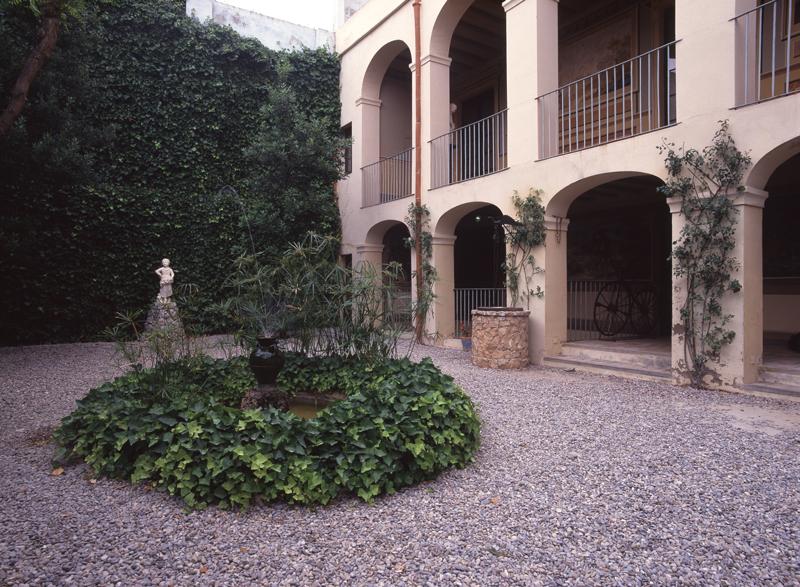
The Romantic Museum Can Llopis is housed in a neoclassical building built in 1793. Owes its name to the first owner, the notary Manuel Llopis i Fals, he bought the house from his cousin, Josep Bonaventura Falç i Roger, who initially had built it for him within the land he urbanized outside the walls of the town, which was the first extension of Sitges during late eighteenth century.
The Llopis family was one of the most important in Sitges, a line of landlords and merchants of wines, spirits and Malvasia, lawyers, historians and diplomats of liberal ideology and conservative character. The descendants of Manuel Llopis i Fals became immersed in the culture of the Renaxença, or Catalan Rebirth. For a time, they were the managers of the new postal service, as indicated with a lion head mailbox located next to the main door of building. Bernardí Llopis i Pujol (1814-1891) became one of the most influential and popular characters in Sitges during the nineteenth century; his son Joan Llopis i Bofill, wrote the first history of Sitges, "l'Assaig històric sobre la Vila de Sitges" (Historical Essay on Sitges) (1886), based on the documentation of the municipal archives under his care.
The last heir of the family, married diplomat Manuel Llopis de Casades (1885-1935), gave the manor to the Government of Catalonia for its conversion into a museum. The outbreak and consequences of the Civil War delayed the proceedings, which were taken in 1943 when the new building was offered to the Barcelona Provincial Council.
The adaptation as a museum began in 1946. In 1949, the main floor was opened to the public and later, the ground floor, garden, cellar and library. The structure and decoration of the walls are the ones present in the original building. The main floor is decorated with paintings by Pau Rigalt, there is also gallery attached to porches and garden. The second floor held the collection of dolls of Lola Anglada from 1961.
Virtual tour through Google Arts & Culture
CLOSED FOR REPAIRS



 Buy tickets
Buy tickets Buy tickets
Buy tickets


